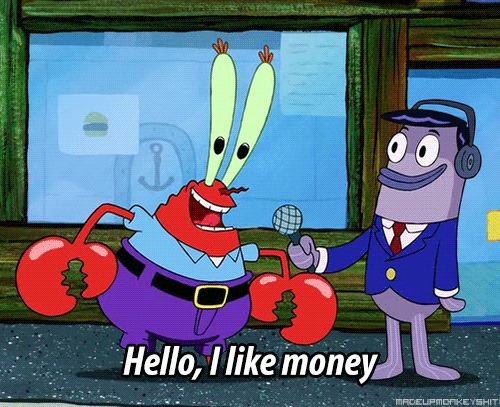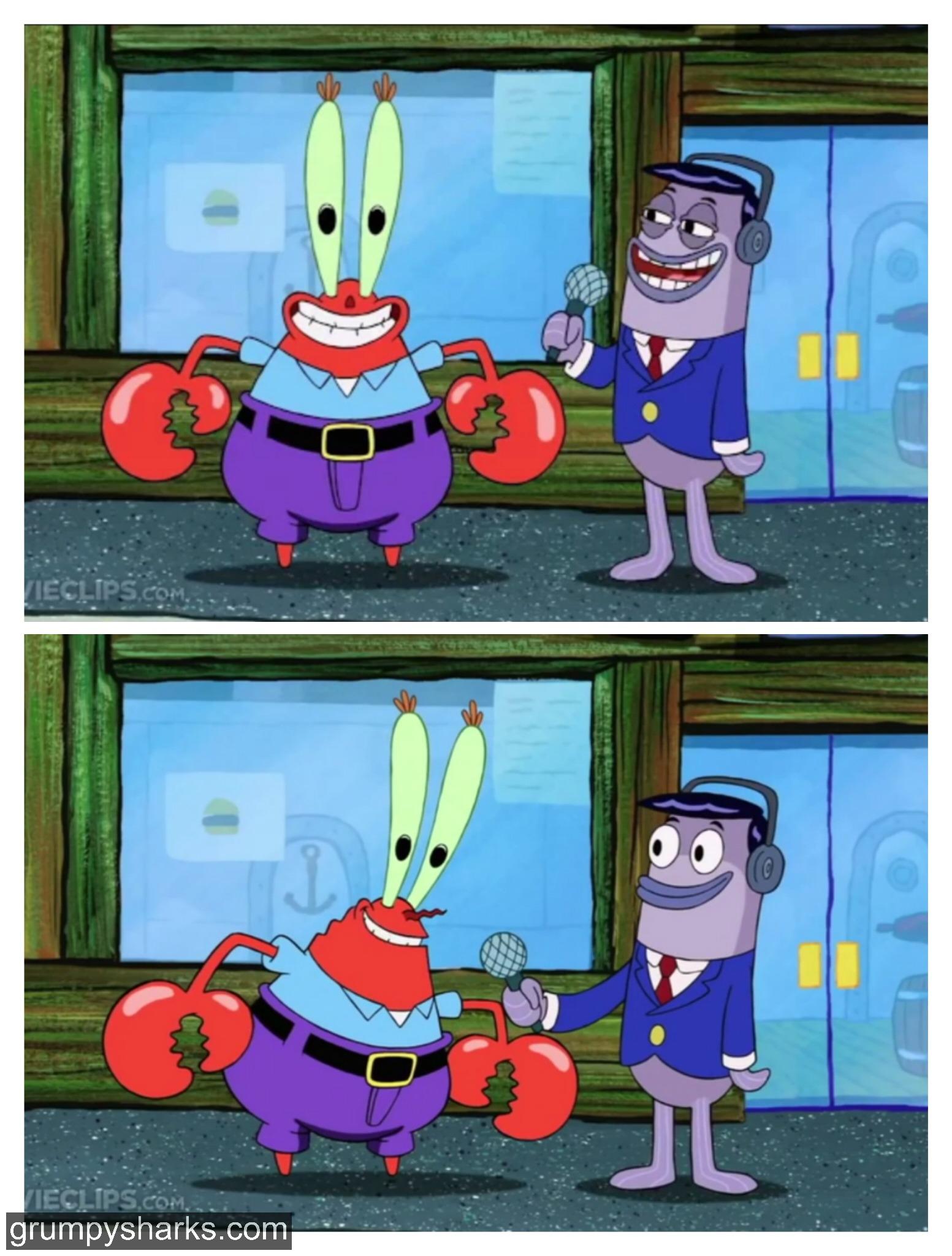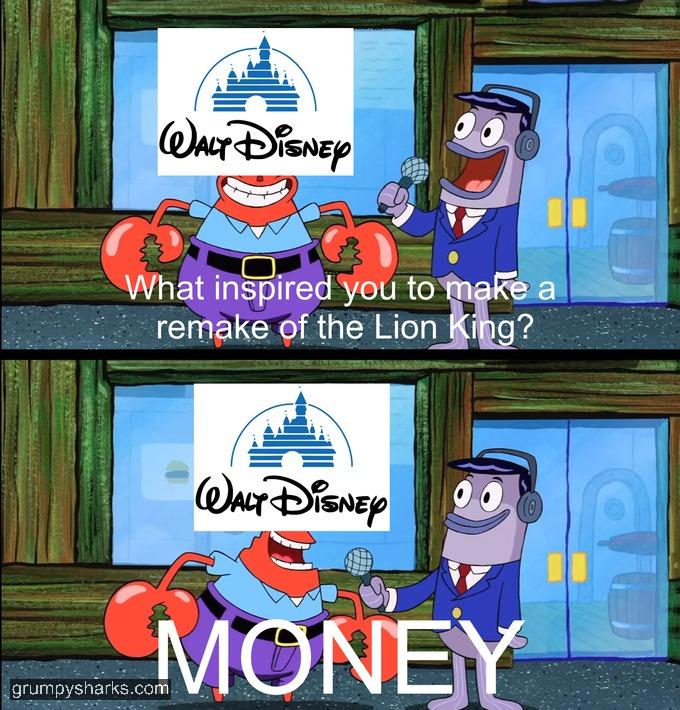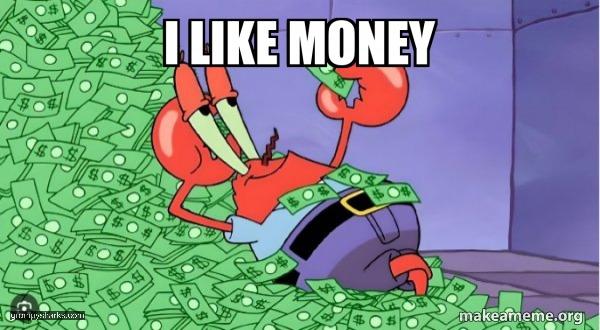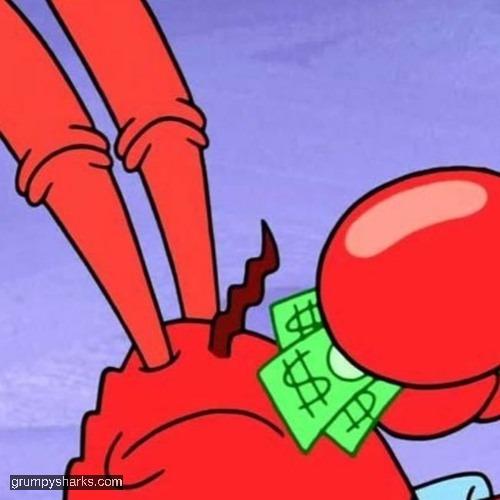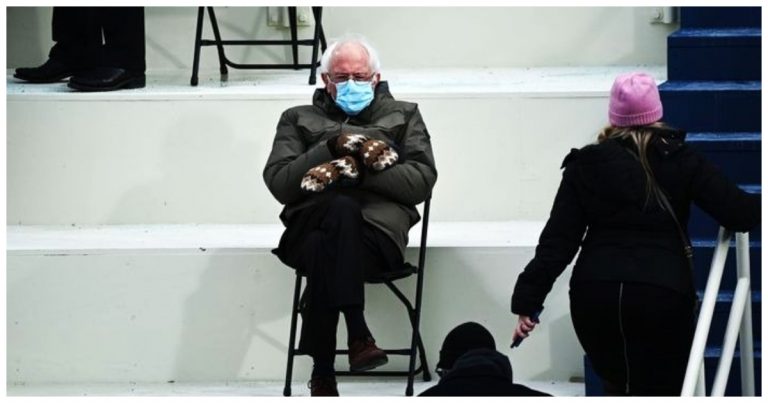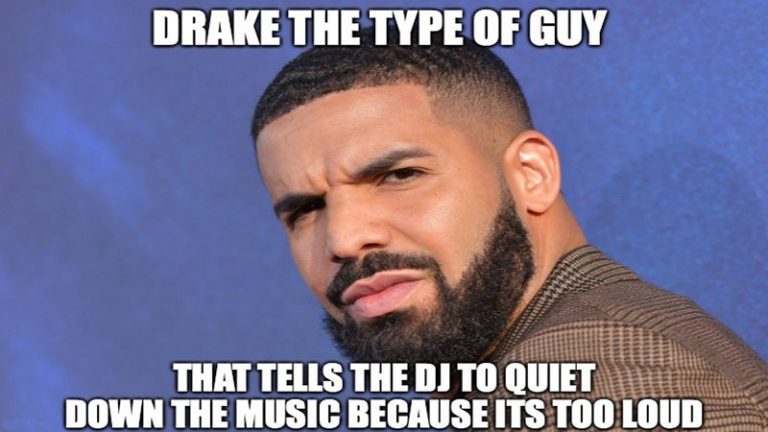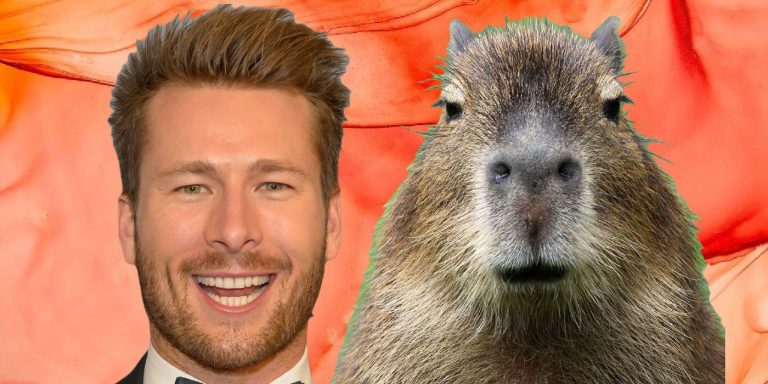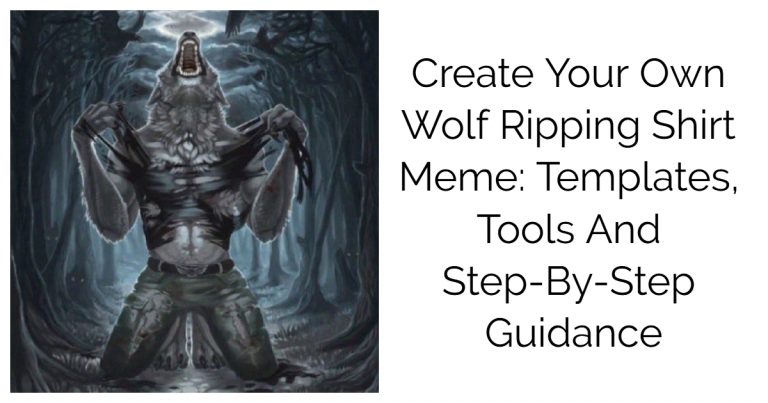Why Mr. Krabs’ “I Like Money” Meme Perfectly Captures Capitalist Humor
Dive into the hilarious world of the Mr. Krabs “I Like Money” meme from SpongeBob SquarePants, exploring its origins in the 2004 movie, why it nails capitalist satire, popular examples mocking corporate greed and personal hustle, its evolution across platforms like Reddit and TikTok, comparisons to other money memes, and its lasting legacy in internet culture.
1. What Is the Mr. Krabs “I Like Money” Meme?
Ah, the Mr. Krabs “I Like Money” meme—it’s one of those simple gems that just hits different every time you see it pop up in your feed. If you’ve spent any time scrolling through memes, you’ve probably encountered this crusty old crab grinning about his favorite thing in the world: cash. But let’s break it down properly, shall we?
The Core Concept of the Meme
The Basic Meme
At the most basic level, the meme is a still image or GIF taken from The SpongeBob Movie (2004) where Mr. Krabs, the notoriously cheap owner of the Krusty Krab, in a very nonchalant, deadpan goes, “I like money.”
It’s usually captioned or edited to be a comedic way to make a jab or poke fun at any sort of greed, be it the corporation squeezing out the last dollar from the product or just your friend trying to justify their new impulse buy.
The comedic value is tied into the bluntness of this violent, absurd nature of profit; recognizing how ridiculous it can be and finding aspects of everyday raging absurdities to laugh at.
For instance, it is commonly used to lightly roast huge corporations for pursuing bucks over quality or ethical action. Expect to see this shared as a reaction image on forums or slapped on videos for comedic intent and effect.
Is It the Internet’s Simplest Take on Capitalism?
Absolutely. Why worry about writing essays about economic systems when a few words can say it all? This meme simply takes capitalism and rips it down to nothing more than the intrinsic need for more money, even if that need is absurd.
The meme isn’t preachy, it is just Mr. Krabs being Mr. Krabs, a character that is celebrated for his unapologetic way of navigating the world, making the meme should be relatable, and shareable, to numerous people.
In a world where we are subjected to corporate ads everywhere we look and the hustle culture, it is kind of weird to see a meme that is much short and simple, and at the same time blunt, because it gives you that classic humor that is still funny because it is relatable and truthful, and we have all at one point felt the temptation of quick cash.
2. Where Did the Quote Come From?
Every great meme has a backstory, and this one’s rooted in the golden era of SpongeBob. Let’s rewind to where it all began, before it exploded across the web.
Scene in the SpongeBob Movie (2004)
Imagine this: Bikini Bottom is buzzing with excitement over the Grand Opening of the Krusty Krab 2. A reporter-Perch Perkins, corners Mr. Krabs for an interview. “Why did you build a second Krusty Krab next to your first?” he asks.
Mr. Krabs responds seamlessly and accurately, “Money.” But the most memorable shout-out is actually the opening line: “Hello, I like money.” A perfect glimpse of the character, a crab that has essentially filled his life with the notion of hoarding treasure, from his first dollar down to every formula-stolen plan.
This singular scene fits within the narrative trajectory of the movie, with Mr. Krabs’ avarice juxtaposed against SpongeBob’s wholesome tomfoolery, demonstrating how money can blind even the shrewdest businesscrab.
This entire sequence is pure SpongeBob; a humorous narrative with deeper pokes into real-life greed.
First Steps Toward Meme Status
It didn’t take long for a line from Moana to stick in the mind of the internet. Immediately upon release, screenshots started going around forums like 4chan and early imageboards in the mid-2000s.
In the 2010s, it really took off as an all-out reaction meme responding to everything and anything “profit-related” that was found in media. Cue the “remember when people couldn’t profit from their good ideas?,” like the template used nowadays.
The line caught on and grew like plankton. I saw “You’re Welcome” pop up in comment sections, and then never-ending iterations as captioned pictures for everything—movie sequels, people’s personal extravagant purchases, and many more.
What started off as a simple throwaway joke in a kids’ movie became an online exhaust pipe for greed in general to discuss.
3. Why the Meme Resonates With Internet Culture
In a sea of memes, why does this one keep floating to the top? It’s all about that perfect blend of satire and relatability, tapping into our love-hate relationship with money.
Satire of Corporate Greed
This meme critiques how profit drives human behavior and philosophy with a sharp set of teeth. Be it wealthy politicians squeezing tax breaks for the rich, or Hollywood continuing to create reboots, Mr. Krabs’ snickers of satisfaction resonated in a powerful way.
It has been attached (meme bandwagon style) to posts about companies that have introduced layoffs and yet some of the same executives receiving serious bonuses too.
It is funny because it makes sense: the flaws of capitalism are expressed in comedic form in a cartoon crab’s facial expression. Given the constant stream of news relating billionaire behavior and consumers laughability make it epitaphically relevant.
The Relatable Side of Wanting Money
But not all is lost. Occasionally, memes take a personal approach, such as joking about accepting that overtime, despite vowing to give up workaholism. These personal posts are ironic self-roast material for hustle culture gurus and anyone who’s even remotely thought about payday loans.
For us, it’s sort of true; we all have a deep money itch, right? That’s why it lives on meme pages, it reflects our own small greeds, while nostalgic memories of SpongeBob linger in the air.
4. Funniest & Most Popular Examples
Alright, let’s get to the good stuff: the memes that make you snort your coffee. These examples show just how flexible this template is.
Business & Corporate Memes
One common one (with, of course, the context being Disney’s continuous remakes): “Disney when they run out of ideas for original films” over Mr. Krabs’ face. Which is funny because all of us have seen that obvious cash-grab sequel media.
Another good one is bemoaning the tech companies trying to update every app just to sell more data— “Apple drops new iphone 16 with some very minor changes.” These really hit hard in subreddits like r/dankmemes, where people there want to bitch about corporate greed.
Personal Finance & Everyday Life
In a more funny way, there would be, “Me taking an extra shift even though I said I needed a break” coupled with Krabs. Or, “When your side hustle pays off, but you’re too exhausted to enjoy it.”
These show up in relatable twitter or instagram threads and make boring financial struggles viral trends. No one seems to get bored of these kind of hilarious complaints, especially when they get thousands of likes. I think they catch people’s attention because we all relate to them in someway.
5. Meme Evolution & Variations
Memes don’t stay static—they mutate, and this one’s no exception. Over the years, it’s grown tentacles into new formats.
Edits, GIFs, and Crossovers
Fans have mixed it with other emblems of greed like Fry’s “shut up and take my money” from Futurama or Wu-Tang’s “cash rules everything around me.”
Imagine a GIF loop of Krabs dancing along to a hip-hop beat, or edited into TikTok skits with sound baits, he has even been blended with “money printer go brrr” for economic roasts. The nuance is virtually endless, from animated loops to directed Photoshop wars.
Use in Political Commentary
Politically, it’s a weapon against shady policies—like tax cuts for the wealthy or influencer sponsorships that scream sellout. Posts about government bailouts often feature Krabs, highlighting how the system favors the rich. It’s subtle activism wrapped in humor, making tough topics more digestible.
6. Where the Meme Went Viral
No meme conquers the internet alone; it needs platforms to propel it.
Platforms That Boosted Popularity
X (formerly Twitter) relishes this because it allows for fast-paced responses to scandals, like terrible layoffs by corporations! Reddit’s r/memes and r/dankmemes are havens for capitalism jokes.
The threads seem to get a ton of upvotes. TikToks have taken it even further with short skits, audio clips overlaid on dances, or rants on what bills we need to pay.
The cross-platform goings-on have turned capitalism from a niche topic to pop culture mainly during periods of economic recession when stories of greed have begun dominating our feeds.
7. The Meme’s Legacy in SpongeBob Culture
SpongeBob memes are a cultural force, and Mr. Krabs is the king of greed-themed ones.
Mr. Krabs as the Internet’s Greed Mascot
Aside from “Blurred Mr. Krabs” (that confused reaction face), and all of the other variants, this is the main source of money humor. He embodies the archetype: cheap, scheming, and somehow, adorable.
In SpongeBob, he is foil to the optimistic SpongeBob, which also makes him great for memes that highlight the contrast between ideas and harsh reality!
Will It Stay Relevant?
Absolutely. As long as corporations chase profits and we chase paychecks, this meme will keep bubbling up. New scandals? Boom, Krabs resurfaces. It’s timeless, like the ocean itself.
Conclusion
In the end, the Mr. Krabs “I Like Money” meme isn’t just a funny picture—it’s a clever mirror to our money-obsessed world. From its movie roots to viral dominance, it captures capitalist humor in a way that’s both biting and fun.
Whether you’re roasting big biz or your own wallet woes, it’s a reminder that sometimes, the simplest jokes hit the hardest. Keep an eye out; it’ll probably pop up in your next scroll.

